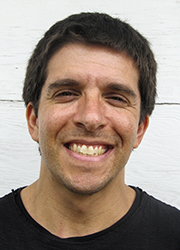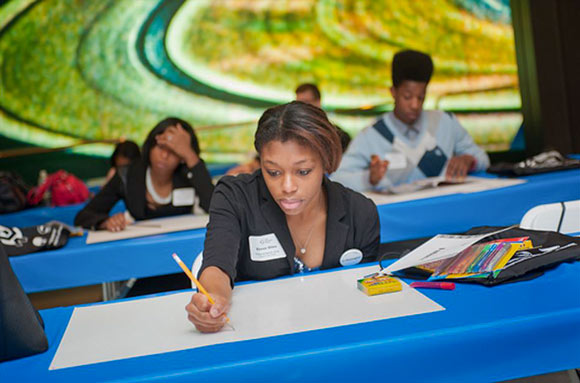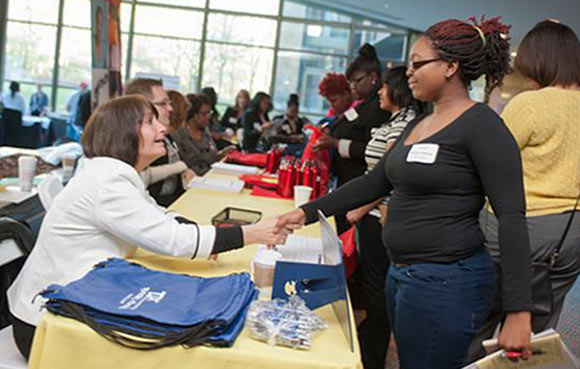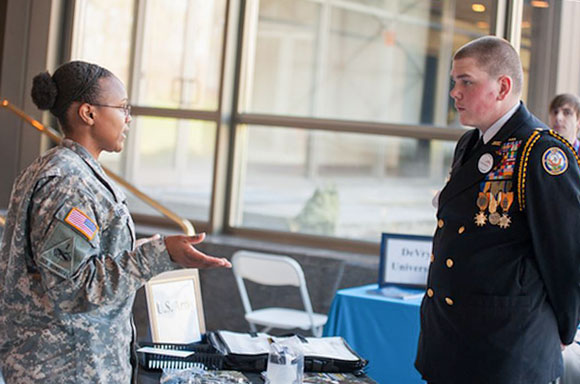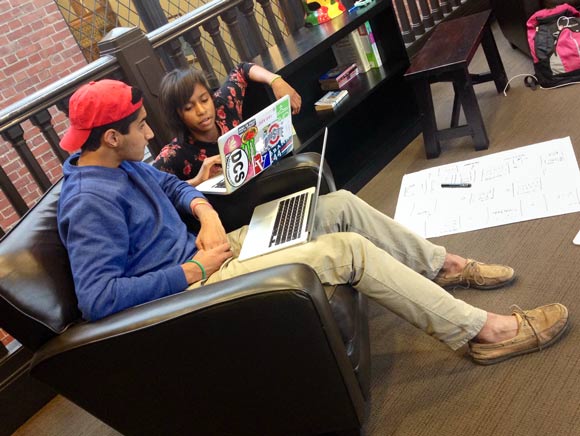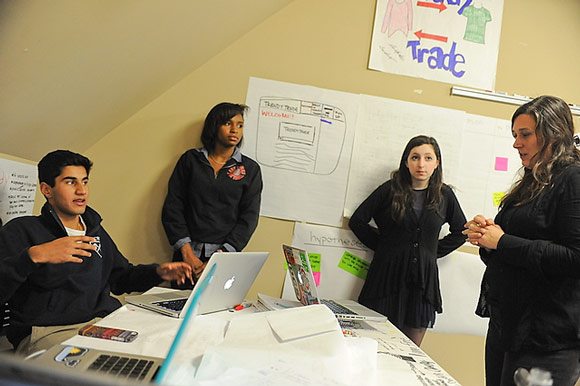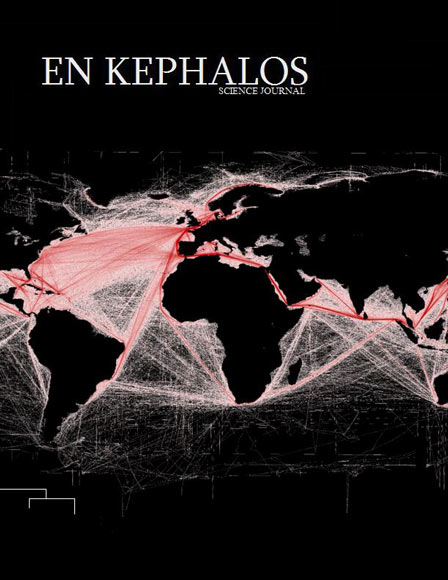high school entrepreneur programs are molding tomorrow's titans of business
A vibrant business idea should not hampered by the age of the mind from which it springs forth. At least that's the thought process behind local programs aimed at would-be high school entrepreneurs, whose go-getting cerebral cortexes presumably are whirring along trying to come up with the next Summly.
Okay, that might be a bit of a stretch: While those spearheading projects for local student innovators don't necessarily expect to produce another Nick D'Aloisio -- the British teen whose mobile news app sold earlier this year for a bank-account busting $30 million -- they do believe their ambitious charges should at least have the opportunity to reach for those highest of entrepreneurial highs.
A regional economy trying to reinvent itself needs just this type of wistful industriousness, say backers of the region's youthful entrepreneurs. Business acumen, they note, can spark at any age, and will only grow when nurtured.
Business ideas take flight
The Hawken School Entrepreneurship Program gives participants a figurative peek inside the brains of real entrepreneurs, explains director Natasha Chornesky. Launched in 2012, the venture is targeted at upper and middle school students attending the East Side private school. The semester-long course has adopted the Lean LaunchPad experiential entrepreneurship methodology, which consists of learning from experimentation and iterative product releases to shorten development cycles and gain valuable customer feedback.
For Hawken seniors who took the course this fall, that meant forming teams with classmates to pitch working, scalable business ideas to investors. They also worked with area startups on customer development, tackling a business's problems and having their more viable solutions implemented.
"This is the first time the students' school work mattered to someone other than themselves or their teachers," says Chornesky, who ran a vanity publishing business before moving to Cleveland for the Hawken position. "They see how the customer experience is changed and their eyes just light up."
As part of a project with Avitae, a caffeinated water company, four teams of students analyzed why the drink was selling well at supermarkets but underselling at gas stations. Participants interviewed consumers and discovered that people at gas stations are less likely to try new products because they usually know what they want to buy before entering the establishment. Grocery store customers, on the other hand, are more inclined to browse and experiment with a new product. The student team that introduced this explanation came away with a $2,500 internship and the far more priceless commodity of real-world experience.
"Not all of these students will go on to be entrepreneurs, but growing their communication skills is going to help them no matter what they do," Chornesky says.
Hawken's innovation education has students brainstorm their own businesses as well. Senior Lauren Lumpkin and three teammates created a "closet-into-cash" enterprise called Trendy Trade, an online clothing database that allows devoted fashionistas to swap apparel with other users.
Lumpkin's group formulated a business plan, marketed the idea through Facebook and Twitter, and organized a clothes swap at Hawken to gauge interest. Their initial foray garnered about 70 participants, and the team soon found an active customer base among their fellow teenage girls.
By the time the course ended in November, Trendy Trade had clothing swaps taking place on its website, notes Lumpkin. The fledgling businesswomen also earned high commendations for their work from local accelerators Bizdom, LaunchHouse, FlashStarts and JumpStart.
While Trendy Trade's quartet of CEOs think about applying for funding from area incubators, Lumpkin believes she gleaned more from Hawken's hands-on entrepreneurial approach than if the class had been steeped in traditional management and economics texts.
"I'm more comfortable talking to strangers and my teamwork skills are better," says the budding entrepreneur. "These aren't things I would have learned in a regular class."
Y.O.U. can be the change
Since 1982, Youth Opportunities Unlimited (Y.O.U.) has been linking underprivileged Greater Cleveland high school youth with much-needed employment opportunities. In more recent years, the nonprofit has been assisting young people who dream of bringing their own ideas to life rather than working for somebody else.
The vehicle for this vision is E City (Entrepreneurship: Connecting, Inspiring and Teaching Youth), taken over by Y.O.U. in 2011 after being founded a decade ago by Cleveland entrepreneurs and business leaders. Those leaders now serve as entrepreneur teachers helping 300 students to date execute their newly envisioned business plans, says Carol Rivchun, president of Y.O.U. Throughout the year-long course students build and market their ideas, culminating in the spring with a final pitch and a chance to earn money for their enterprises.
Last year, the program produced a cupcake business and a pet-sitting service. Vanessa Galvan of T.W. Harvey High School in Painesville won the top honor of Young Entrepreneur of the Year for Piñata Time, a company that makes kits that include everything needed to create a piñata.
Ideas like the piñata business have lived on following the program's conclusion, notes Rivchun. Even those whose businesses prove unsustainable are learning something about fiscal literacy and the makeup of the entrepreneurial personality.
"These kids are learning to not take 'no' for an answer," says Rivchun. "We want them to understand that growing a business is not easy, but they can do it."
Upon request, students leaving the program are connected with the appropriate business resources. One of them is LightHouse Ohio, a business accelerator and incubator for high school students that recently teamed with LaunchHouse to pioneer the LightHouse Entrepreneurial Accelerator Program (LEAP). Groups like JumpStart and Bizdom also provide coaching and other services for budding entrepreneurs.
"It's a warm handoff," Rivchun says of the post-program process. "We just don't say good luck and goodbye."
While not a Y.O.U. graduate, Beachwood High School senior Danny Sheridan sat in on Bizdom meetings to watch the interactions between investors and hopeful entrepreneurs.
"It was like a real-life Shark Tank," says Sheridan, whose e-commerce company Woodside Distributors dispenses everything from after-dinner mints to LED lights through third-party websites. "I saw how investors evaluate worth and determine whether or not to invest in a company."
Bizdom was an invaluable resource for Sheridan's business, which he started four years ago after finding he had knack for selling items on eBay. He now distributes 120 different products and expects to reach $250,000 in sales by year's end. Thanks to a flexible class schedule, he's able to spend 40 hours a week on further advancing his company.
"Cleveland has some great resources for entrepreneurs," even those who haven't yet graduated from high school, Sheridan points out. "I know they're there if I need them."
The city needs more brainy dynamos more like Sheridan, Lumpkin and the young woman with the piñata company, says Hawken School's Chornesky. As startups can be the agile job-creators that create revenue for a new economy, all a young entrepreneur might need is a gentle nudge in the right direction.
"As a kid you only know what you're exposed to," Chornesky says. "There should be no excuse for sitting on an idea."
